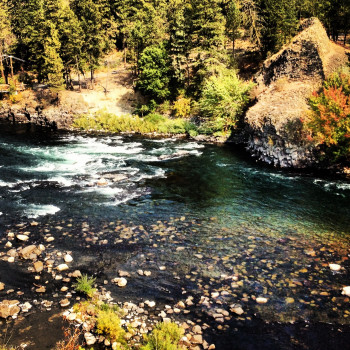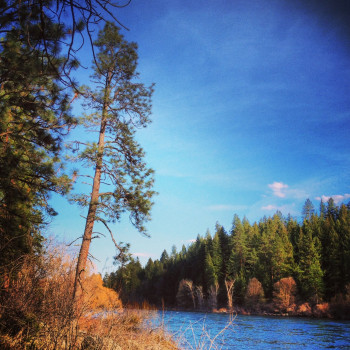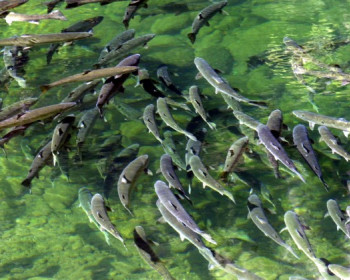Strides for the Spokane
By Marla Nelson
When I started the Spokane Clean Water Project last year I had many apprehensions. Would I be able to make a difference? Is citizen enforcement necessary to improve the Spokane River? Would I be run out of town as a radical environmentalist?
Once I started digging in, however, the fears largely subsided. Law students at Gonzaga University Law School were eager and willing to take advantage of the unique opportunity to do Clean Water Act enforcement work. The staff from Washington’s Department of Ecology gave me a warm welcome, offering resources and time. Ecology’s publicly available online filing system for permit records made reviewing discharge reports super smooth.
How citizen suits can help the Spokane River
The Spokane River and the species that rely on it for habitat have been subject to degradation and pollution from various sources over the years, including structural and hydrographic changes from the construction and operation of seven hydropower dams, stormwater runoff from roads and urban areas, and sewage overflows.

But a simple fix sometimes takes a little prodding. In this case NEDC’s notice letter was not enough to spur action by the facility. Instead, I had to learn the ins and outs of electronic filing to file my first complaint in Federal District Court. Shortly thereafter the facility agreed to a settlement offer. One thing I hope to learn through more litigation experiences is how to measure the strength of my hand: in retrospect perhaps we could have pushed for more.
Success measured by real outcomes
Throughout the process of filing the notice letter and then the complaint, I questioned whether a citizen suit could have much of an impact. At the conclusion of the case, however, I am confident that NEDC has instigated major strides for the Spokane River.
First, as part of the settlement agreement the facility will take substantive measures to improve how it controls stormwater on the site. Second, the facility is contributing funds to the Spokane Riverkeeper for a supplemental environmental project to address industrial stormwater pollution in the Union Basin, a highly industrial region of Spokane.
Finally, this action will serve as an example and deterrent to non-compliance for similar industrial facilities in the region. Far from being run out of town, I feel like NEDC’s Spokane Clean Water Project has had a direct impact and has become an integral part of the Spokane community.
More Northwest Environmental Defense Center (NEDC) Stories
Northwest Environmental Defense Center is located in Law School.
MSC: 51
email nedc@lclark.edu
voice 503-768-6726
fax 503-768-6671
Jonah Sanford
Executive Director
jonah@nedc.org
Eve Goldman
Law Clerk
nedc@lclark.edu

